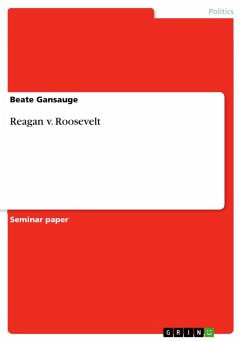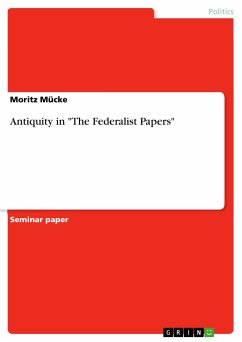Seminar paper from the year 2006 in the subject Politics - Political Theory and the History of Ideas Journal, grade: 1,3, Dresden Technical University (Institut für Politikwissenschaft), course: Political Ideas and Political Institutions in the United States, language: English, abstract: This essay discusses the question whether - regarding the United States in the late 18th and 19th centuries - we should consider that political values or political institutions were more responsible for the maintenance of democratic practices. For this purpose the arguments of Madison, Tocqueville and Hartz are reconsidered. Since the fall of Rome there was no long lasting democracy in the history of mankind, though there had been several attempts to establish one, all failed in terms of duration. So the founding fathers of the American Constitution in the late 18th century were deeply concerned about the possible failure of the young democracy. So far all empirical evidence supported Platon's teachings of a cycle of returning political regimes that led inevitably from democracy to oligarchy to dictatorship and again to monarchy. The construction of a political system that was both democratic and stable had never worked before. So the main question of this essay, whether political values or political institutions were more responsible for the maintenance of democratic practices, was essential to the people of that time. The Federalists' most important question is: How can one create a stable political order that is still free and democratic? Their answer is: By carefully constructing the political institutions in a way that compensates the imperfection of man. In contrast to this Tocqueville and, tying up to him, Hartz are pointing out the necessity of political values to maintain democratic practices. In my opinion, institutions are more important than political culture in order to create a stable political system, but surely both factors cannot be isolated from each other. Not only do they strongly depend on each other but can probably even be regarded as two sides of the same coin. To prove this thesis I will first introduce the different approaches of Madison, substitutional for The Federalists, who favour a strong state, and of Tocqueville and Hartz, who rather accentuate the importance of political culture and civic virtues. In my opinion all three authors agree on the relevance of both pillars of democracy - polities and culture. Indeed, I believe that Tocqueville recognises the need for strong institutions just as much as Madison. Furthermore I want to introduce "economic prosperity" as a third stability granting factor to which in my opinion is paid too little attention by the relevant authors.
Dieser Download kann aus rechtlichen Gründen nur mit Rechnungsadresse in A, B, BG, CY, CZ, D, DK, EW, E, FIN, F, GR, HR, H, IRL, I, LT, L, LR, M, NL, PL, P, R, S, SLO, SK ausgeliefert werden.









